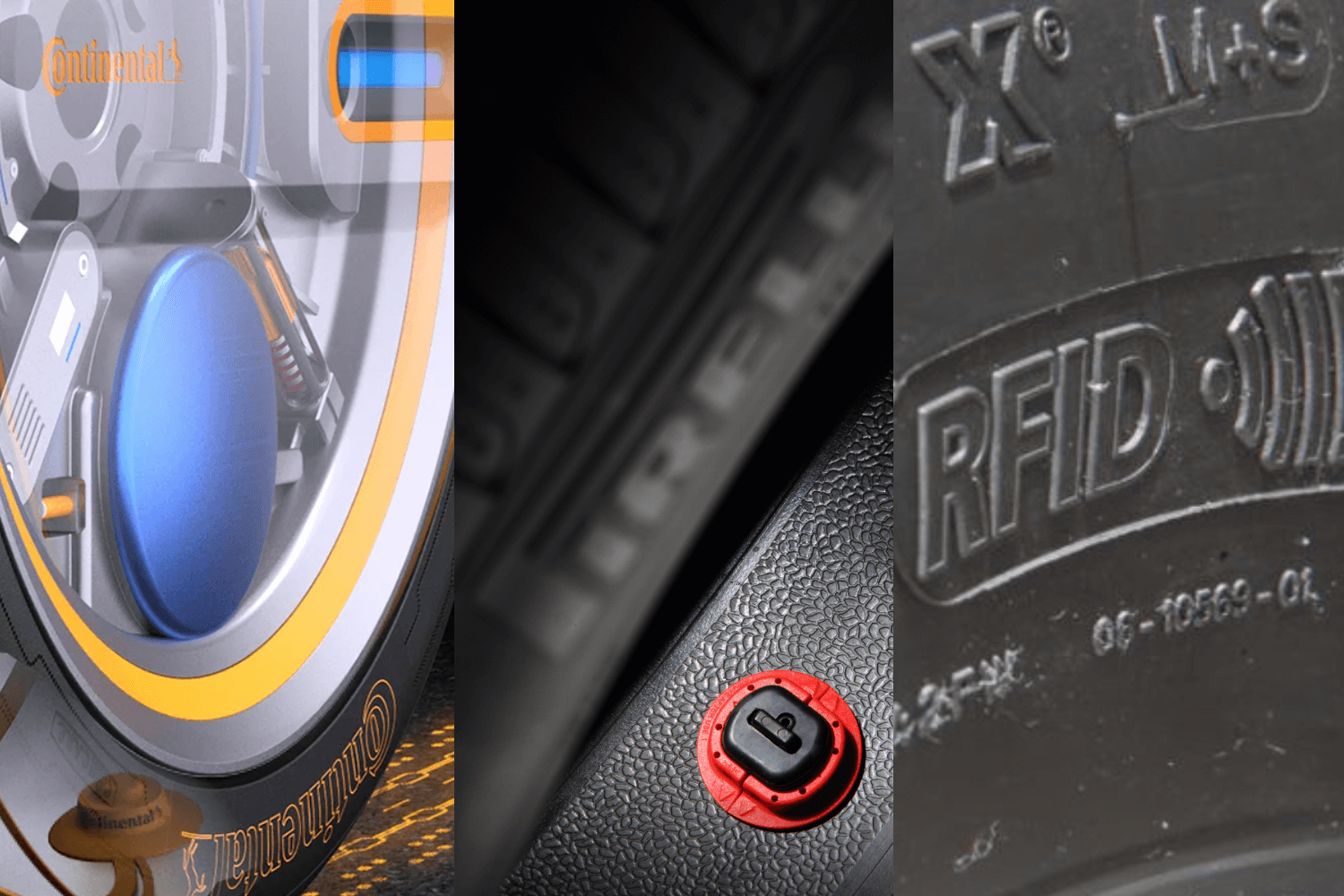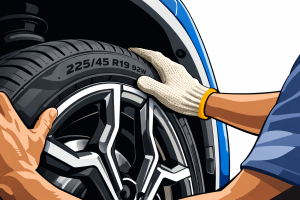In a world that’s constantly evolving with technology, it’s no surprise that even tyres are getting smarter. Once just rubber casings filled with air, tyres are now transforming into intelligent systems designed to monitor, adapt, and enhance every journey.
Smart tyres are not just a futuristic concept anymore—they are already reshaping how vehicles interact with roads, improving safety, efficiency, and performance. These intelligent components have begun to influence not only how we maintain our vehicles but also how we drive them, adding an extra layer of interactivity between car and driver.
What Are Smart Tyres?
Smart tyres, also known as intelligent tyres, are embedded with sensors and advanced materials that collect and transmit real-time data about the tyre’s condition. These high-tech components are capable of monitoring critical performance indicators such as tyre pressure, temperature, tread depth, load and weight distribution, road surface conditions, and even vehicle speed and motion dynamics.
All this data is sent to the vehicle’s onboard computer or a dedicated mobile app, allowing drivers or fleet managers to make informed decisions for better vehicle performance and maintenance.
How Smart Tyre Technology Works
The core of smart tyre technology lies in its use of embedded sensors—ranging from RFID chips to Bluetooth-enabled modules—which are integrated either during manufacturing or retrofitted afterward through devices like smart valve caps or internal inserts. These sensors continuously collect data, transmitting it wirelessly to a central control system or smartphone app.
Once received, the information is analyzed to detect any irregularities, such as sudden pressure drops or temperature spikes, which could signal potential tyre failure. Some advanced systems can even dynamically adjust the tyre’s performance based on the terrain, weight load, or driving behavior, offering a personalized and optimized driving experience.
Benefits of Smart Tyres
There are numerous benefits to adopting smart tyre technology. First and foremost, it significantly enhances road safety. Under-inflated or overheated tyres are among the leading causes of blowouts and accidents, but smart tyres provide early warnings, enabling proactive maintenance.
They also contribute to better fuel efficiency by ensuring tyres are always operating at optimal pressure, thereby reducing rolling resistance. Furthermore, smart tyres extend the lifespan of the tyre by helping to maintain proper alignment and balance, which leads to even tread wear.
Performance is another area where smart tyres shine. With real-time feedback on various parameters, the vehicle can adjust grip and handling to suit driving conditions. This is especially useful for high-performance vehicles and commercial fleets.
Additionally, predictive maintenance becomes more feasible, allowing issues to be addressed before they result in costly repairs or downtime.
Applications Across Industries
Smart tyre technology has diverse applications across different industries. For passenger vehicles, it enhances convenience and safety for daily drivers, especially as more luxury cars now come equipped with advanced tyre monitoring systems.
In logistics and transportation, fleet managers benefit immensely from the data insights, which help with route planning, vehicle optimization, and meeting safety regulations. Even in agriculture and heavy-duty sectors, smart tyres support operational efficiency by providing better traction, load management, and terrain adaptation.
Challenges and Considerations
Despite these benefits, smart tyres are not without their challenges. They typically cost more than traditional tyres, which might deter some consumers. Compatibility is another issue, as not all vehicles can support external smart tyre systems.
Furthermore, sensors and electronics must be robust enough to endure extreme conditions such as heat, water, and rough terrain. Lastly, like any connected device, smart tyres raise privacy and cybersecurity concerns, especially with continuous data transmission.
The Future of Smart Tyres
Looking ahead, the future of smart tyre technology is promising and dynamic. Innovations such as self-inflating tyres, which can automatically adjust air pressure based on road conditions and vehicle load, are already being tested. Artificial Intelligence (AI) is expected to further enhance adaptability by learning driver behavior and environmental conditions, delivering an even more customized driving experience.
Sustainability is also in focus, with manufacturers aiming to use recyclable materials and develop features that reduce environmental impact. Additionally, Vehicle-to-Everything (V2X) communication is on the horizon, enabling tyres to interact with other vehicles and infrastructure to promote safer, smarter transportation ecosystems.
Leading Brands Driving Innovation
Several globally recognized tyre manufacturers are pioneering smart tyre solutions, many of which are commonly distributed through reputable local tyre retailers and service networks. Continental, for instance, has introduced ContiConnect and ContiSense systems aimed at fleet management and real-time monitoring.
Michelin uses RFID-enabled tyres for trucks and motorsport applications, while Pirelli‘s Cyber Tyre system integrates with a vehicle’s control interface for enhanced performance management. Bridgestone, on the other hand, is focusing on predictive technologies tailored for autonomous vehicles and commercial applications.
Final Thoughts
The rise of smart tyres marks a significant shift in automotive technology, transforming what was once a passive vehicle component into an active contributor to road safety, fuel efficiency, and driving performance. As smart tyre systems become more accessible and widespread, they are set to become standard features across all vehicle types.
Whether you’re a tech enthusiast, a safety-conscious commuter, or a fleet operator, smart tyre technology delivers tangible benefits that elevate the entire driving experience, making the road ahead safer, smarter, and more connected than ever before.




